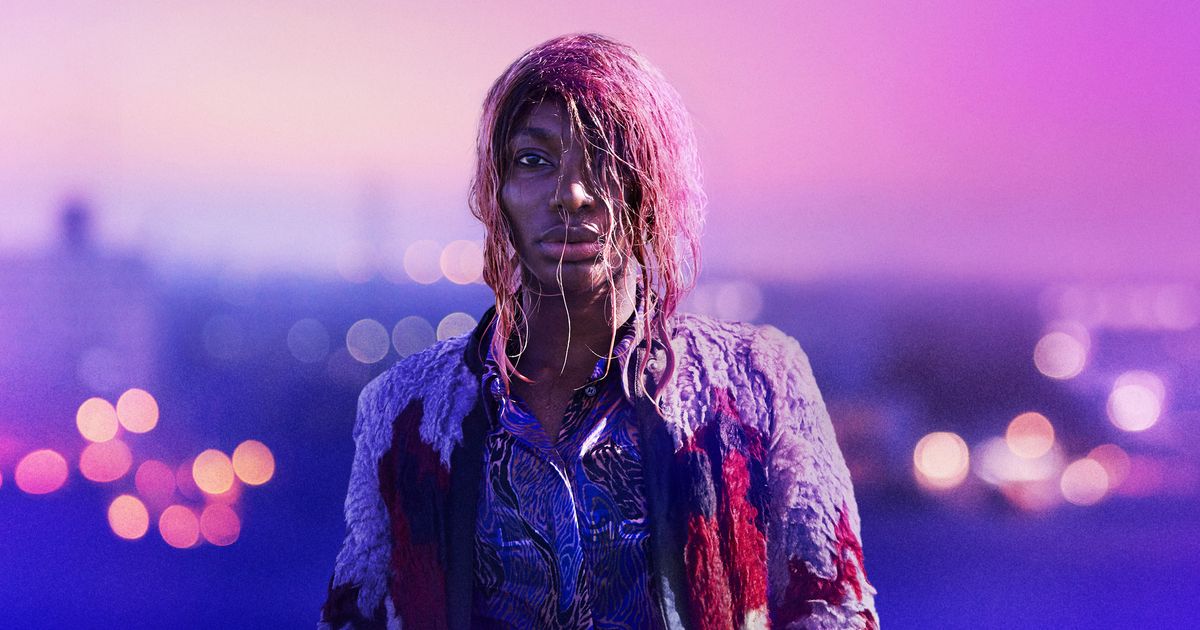
Content warning: This review contains discussion of rape and sexual violence.
You won’t be able to shake I May Destroy You from your thoughts. After watching, you’ll close your laptop, or turn off your television, but I guarantee you this: it will stay with you. Created by Chewing Gum writer Michaela Coel, this new 12-part BBC One/HBO drama tackles the intersection of sexual assault, consent, and race in a radical way that is rarely, if ever, seen on screen.
Episode 1 begins with Arabella (Coel), a young millennial writer living in London, pulling an all-nighter in a last minute attempt to finish the book she’s been writing. When she takes a break to meet up with friends (setting a one-hour alarm for herself), the night changes course. The following day, she has no recollection of how she got back to her desk, or how her phone screen got smashed, or why there’s blood pouring from a gash on her forehead. Arabella is disorientated, confused, and grappling with a disturbing flashback of someone being raped. That someone, she later realises, was her.
[embedded content]
These events unfold in a way that is infused with striking realism — and that is no accident. In Aug. 2018, while delivering the McTaggart lecture at the Edinburgh Television Festival, Coel said she was raped when she was writing Season 2 of Chewing Gum. “I was working overnight in the [production] company’s offices; I had an episode due at 7 a.m. I took a break and had a drink with a good friend who was nearby,” said Coel. When she regained consciousness, she was typing Season 2. “I had a flashback. It turned out I’d been sexually assaulted by strangers. The first people I called after the police, before my own family, were the producers.”
In the press materials sent by the BBC, Coel makes reference to the real-life roots of the story. “All in all, the hardest thing was not getting distracted in wonderment at the confounding reality of having turned a rather bleak reality into a TV show that created real jobs for hundreds of people,” she said.
But, out of this bleak reality, Coel has created something that challenges on-screen depictions of sex, consent, and assault. Black women have been historically been erased from conversations about sexual violence. That omission is rooted in racism that can be traced back to the time of slavery, when rape was only considered something that happened to white women. As Vanessa Ntinu wrote in gal-dem, “Historically, black women are perceived as objects of sexual exploitation, dating back to days of slavery where the concept of rape was never applied to the black woman simply because she was assumed to have been a willing and promiscuous participant.”
In those first few episodes of I May Destroy You, Coel explores an aspect of sexual violence that gets little attention: unacknowledged rape. Psychologists use this term to describe sexual violence that fits a legal description of rape or assault, but is not labelled as such by the survivor. For the first two episodes, Arabella doesn’t realise she’s been assaulted. Even when talking to a police officer about that night, she urges caution in the police officer’s interpretation of her disturbing flashback, the images she couldn’t shake from her mind. Coel brings to life an element of assault survivors’ experience — the difficulty of realising that you’ve been raped because the reality of rape is so different to how it’s portrayed on screens and in the media.
Later in the series, when Arabella’s agents introduce her to another writer, Zain, to assist somehow in the writing of her book, the two end up having sex. What Arabella doesn’t realise, though, is that Zain removes the condom midway through — a violation that is also known as “stealthing,” a form of sexual assault.
Arabella’s story isn’t the only remarkable part of this show. Her best male friend Kwame (Paapa Essiedu) has a storyline that explores black masculinity, internalised homophobia, and male experiences of rape. Meanwhile, Arabella’s other best friend Terry (Weruche Opia) endures a racist microaggression during an audition for a supposedly empowering advert when a white casting director asks her to take off her wig so she can see her natural hair.
This show is coming to our screens at a pivotal moment in history — as protests continue across America and parts of the globe against racism and police brutality, following the police killing of George Floyd, who died after an officer kneeled on his neck for nearly nine minutes.
The contents of I May Destroy You has the power to challenge stereotypes and misconceptions about who rape happens to, and what sexual violence really looks like. That act of service could not be more necessary.
I May Destroy You debuts on HBO on Sunday, June 7, and on BBC One on Monday, June 8. Both episodes will be available on BBC iPlayer from Monday.
